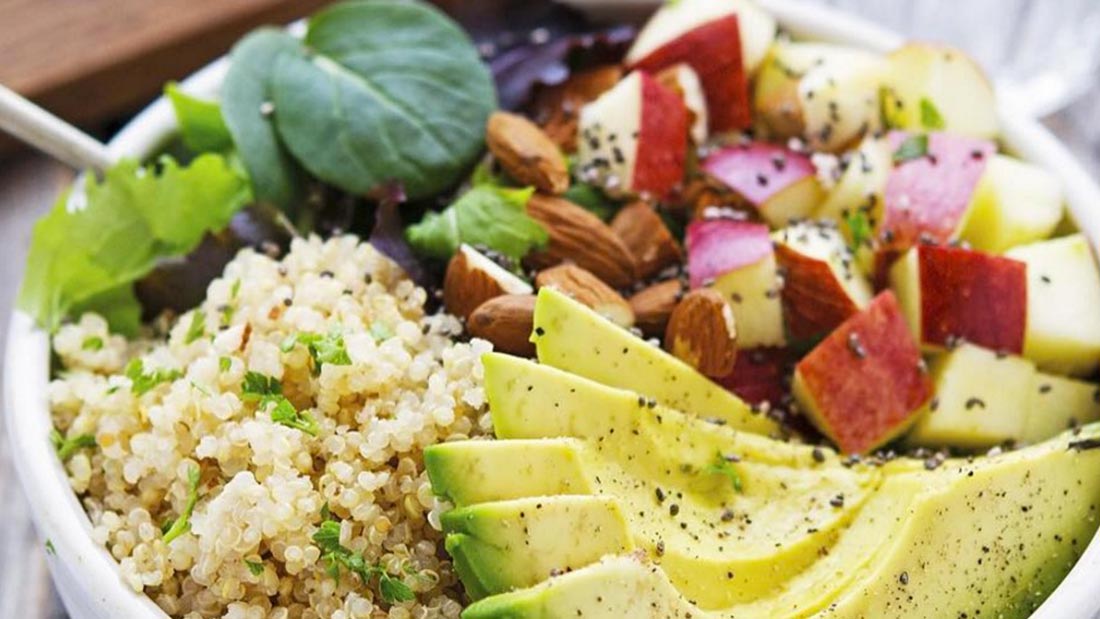Healthy weight

Being overweight puts you at higher risk of various health problems, including:
- Type 2 diabetes
- Cardiovascular disease
- High levels of fat in the blood (hyperlipidaemia)
- High blood pressure (hypertension)
- Certain cancers
Vegan diets have a better fat profile, in that they’re lower in bad fats (saturated fats) and higher in healthy fats (monounsaturated and polyunsaturated fats). Fat provides 9 calories per gram, twice as many calories as protein or carbohydrate, which both provide 4 calories per gram. Body fat starts to increase when your body is provided with more calories than it needs.
However, not all fats are equal. Read here why some fats are very different to others, and why a vegan diet is healthier!
When you’re eating more wholefoods you’ll be eating more fibre, which helps to maintain a healthy weight – learn how here. People eating low-fat, high-carbohydrate diets can eat more food in weight compared to others as these foods have lower energy density.
There have been numerous studies showing that vegans are more likely to be a healthy body weight – even without portion restriction. Here’s a small selection of studies:
- When studying of over 70,000 participants, Rizzo et al. (2013) found that vegans had the lowest percentage of obese people at 9.4 per cent, whereas meat-eaters had the highest at 33.3 per cent. 24 per cent of vegetarians and 18 per cent of vegetarians were obese.
- A Tharrey et al. (2019) found that vegan children were most likely to be a healthy body weight, compared to vegetarian and omnivorous children, with diets lower in fat and added sugar, and higher in fibre.
- A large study of over 55,000 women showed that vegans were least likely to be overweight or obese, with a 65% reduced risk (Newby et al., 2005).
- A study of over 81,000 participants found plant protein to be associated with decreased risk of early death from cardiovascular disease and lower BMI, whereas animal protein was associated with an increased risk of cardiovascular death and higher BMI (Newby et al., 2005).
- A 2015 study found that overweight participants put on a low-fat, low-GI vegan diet (and allowed to eat as much as they liked) lost more weight than participants on low fat, low GI vegetarian, pesco-vegetarian, semi-vegetarian and omnivorous diets (Turner-McGrievy et al., 2015).
More and more studies are revealing the same thing – a vegan diet is healthiest!
For references and more information, see The Incredible Vegan Health report or visit Nutrition News for latest studies on diet and health.




